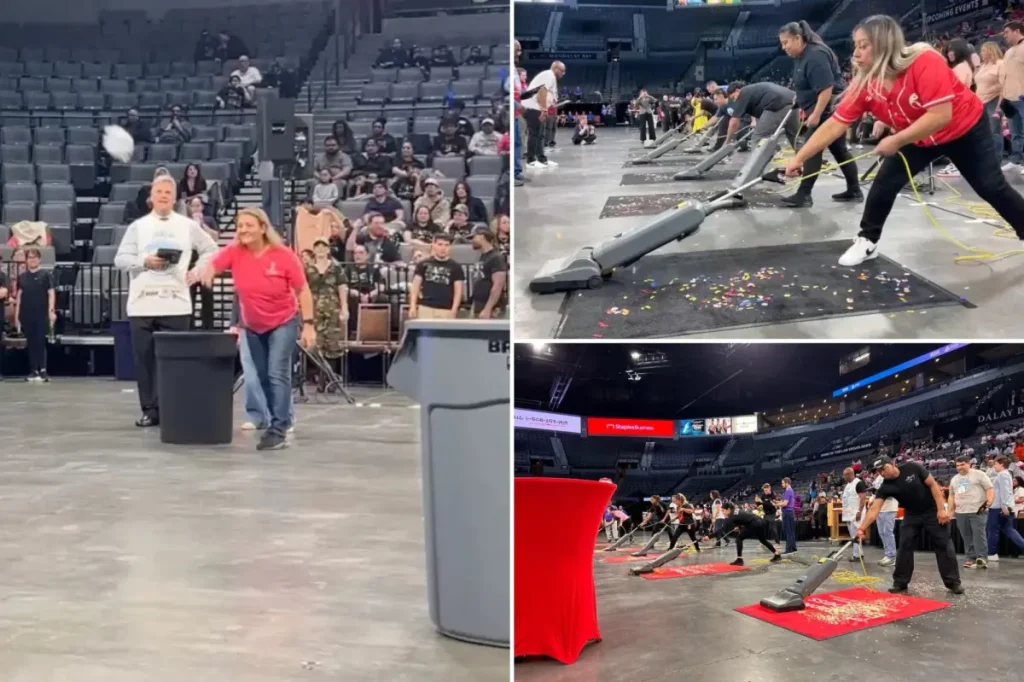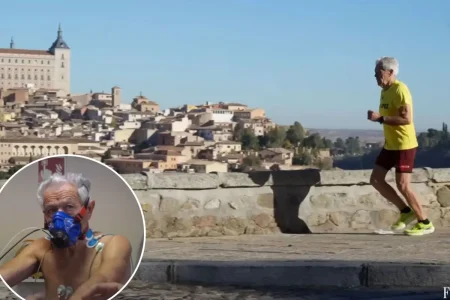The Housekeeping Olympics: Celebrating Skill or Questionable Spectacle?
In the endless scroll of social media, sometimes something truly unexpected captures our collective attention. Recently, videos of the Housekeeping Olympics have taken over countless TikTok feeds, leaving many viewers both fascinated and confused. These viral clips show hospitality workers in brightly colored team shirts racing to make beds, maneuvering vacuum cleaners with precision, and competing in various cleaning-related challenges while crowds cheer them on. For most people discovering these videos, the immediate reaction is a mix of curiosity and disbelief—is this actually real? The answer is yes. For 35 years, this competition has been a tradition in Las Vegas, though it remained largely unknown to the general public until social media algorithms recently decided to shine a spotlight on this unusual event.
The Housekeeping Olympics is an annual competition organized by the Indoor Environmental Healthcare and Hospitality Association (IEHA), bringing together teams from major Las Vegas hotels to compete in Michelob Arena, which can seat up to 12,000 spectators. The event features surprisingly intense competitions centered around housekeeping skills: a bed-making race where contestants sprint toward unmade beds and transform them into hotel-perfect displays within seconds; a mopping relay where participants weave through “wet floor” signs; and a vacuuming challenge judged on both speed and cord-wrapping technique. More creative events include a blindfolded “buffer pad toss,” a toilet paper throwing contest, and an obstacle course performed on motorized floor cleaners. Judges with clipboards scrutinize technique and timing, with medals awarded for each event and official records maintained. This year, nine teams competed, with the ARIA/Vdara team claiming the championship title.
According to organizers, the Olympics serves as a celebration honoring the dedicated people who “meticulously care for guests every single day” in the hospitality industry. The competition offers these workers, whose efforts typically go unnoticed, a moment in the spotlight where their skills are recognized and cheered. Team members train for these events, displaying impressive speed and precision that comes from daily practice in their regular work routines. The camaraderie between colleagues and the pride they take in their professional skills becomes evident as they cheer each other on throughout the competition. For many participants, the event represents a rare opportunity for public recognition of their expertise in an occupation that often operates behind the scenes, with workers entering and leaving rooms without ever meeting the guests they serve.
However, as videos of the competition spread across social media, reactions have been decidedly mixed. While some viewers find the displays of cleaning prowess oddly satisfying to watch, many express discomfort with the concept. Comments describing the Olympics as “dystopian,” “AI-like,” or “a humiliation ritual” have garnered thousands of likes. Critics point out that turning low-wage work into a competition potentially reinforces problematic labor practices. “It’s pushing the narrative that faster is better in these kinds of jobs, squeezing more out of an employee for the same pay,” one commenter noted. This criticism takes on additional weight considering that housekeepers in Las Vegas earn an average wage of only about $16 per hour, and the Olympics offers no prize money—just trophies and recognition. Some view the spectacle as reinforcing capitalist ideals of productivity above all else, where the exceptional speed demonstrated in competition could become the expected standard back in daily work settings.
The gender dynamics of the competition have also drawn attention, as housekeeping remains a field predominantly staffed by women. The spectacle of cleaning work being celebrated in an arena while similar work goes unrecognized in homes across the country strikes some as particularly jarring. Statistics highlight this disparity: according to the Australian Bureau of Statistics, 70 percent of women regularly do housework compared to just 42 percent of men, and women now spend 50 percent more time on housekeeping than they did two decades ago, while men’s contribution remains largely unchanged. Though defenders of the Olympics point out that men do participate in the competition, the broader societal context of who typically performs cleaning labor—both professionally and domestically—adds another layer to the conversation about what exactly is being celebrated and why.
Ultimately, the viral discovery of the Housekeeping Olympics has sparked a complex dialogue about labor, recognition, and the value we place on different types of work. Defenders of the event emphasize that participants take genuine pride in their skills and deserve celebration rather than condescension. “These people are proud of their work,” one supporter commented. “You only think it’s wrong because you are devaluing their work.” This perspective highlights an important truth: housekeeping requires genuine skill and knowledge that deserves respect. Yet questions remain about whether turning necessary labor into entertainment reinforces or challenges existing power dynamics in the hospitality industry. As videos of the Housekeeping Olympics continue to circulate, they invite us to consider what it means to celebrate work that is essential yet often invisible, and whether public recognition through competition is empowering or merely spectacle. Perhaps the most valuable outcome of these viral videos is simply that they’ve prompted millions to think more deeply about the people who clean the rooms they sleep in when traveling—people whose labor is designed to go unnoticed, until now.














